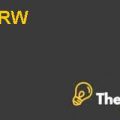Q1.) (a) How does a regular (nominal) Treasury bond work?
A regular Treasury bond is issued by the United States government, and they pay a fixed interest rate over the maturity period, meanwhile, they can be traded in the market hence they are a marketable instrument. Additionally, the maturity period of the US Treasury bond is more than 10 years and fixed interest is paid half yearly, which is taxed at the federal level, further, the treasury bonds are denominated in not less than a minimum amount of $1,000 per Treasury bond. Meanwhile, the treasury bonds transactions are conducted by the dealers and government do not directly deal with the general public instead the limited number of dealers purchase the treasury bills, from government through auction and then float these treasury bonds on the open market where the market forces such as demand and supply determines the price and the resulting interest percentage on these treasury bonds.
Q1.) (b) How does inflation impact the coupons and principal of a T-bond?
Meanwhile, the inflation would have a double impact in treasury bonds where the first impact would be that due to the increase in inflation the government authorities would increase the interest rates in order to control the inflation and this increase in inflation would not increase the interest rate of already issued fixed interest treasury bond hence due to the offering of lower interest the market price of the already issued treasury bond will decrease. Meanwhile, the other less probable impact would be that the nominal return generated by already issued bonds will fall because it will not include the inflation effect in interest payments. However, Treasury bonds are considered to be risk free, but as per above explanation they do carry a risk to some extent.
Q1.) (c) How are TIPS different from regular T-bonds?
However, the United States Treasury inflation-protected securities (TIPS) are designed to overcome the risk of decline in value and interest yield due the increase in market interest rates led by the inflation. Hence, TIPS are designed to generate a return that is in line with the market interest rates, meanwhile, the price of the TIPS is also linked to the consumer price index (CPI) hence it overcome the risk of devaluation of these securities due to the increase in market inflation rates. Meanwhile, the value of a treasury bond will decline if there is deflation in the market, but at maturity date of US treasury bonds, the holder will be eligible to receive the higher principal amount or the inflation adjusted amount. Meanwhile, the interest is charge of the federal government on the interest payment and capital gains are taxed in the year they are generated.
Q1.) (d) When does TIPS outperform/underperform regular Treasuries?
However, the TIPS outperform regular securities because they pay back a return which is economically equal to the market returns even in times when the inflation in the US market is higher than the expectations of the bond market. However, in case of inflation in the US market the TIPS will underperform the ordinary treasury bonds, meanwhile, in case of a deflation in the US market the value of TIPS would, however, decline, but the holder of TIPS would receive a minimum of the amount that was originally invested in the TIPS.
Q2.) What effect do you think an increase in real interest rates has on the price of TIPS? And an increase in realized inflation? An increase in expected inflation? An increase in inflation risk?
However, since the increase in real interest rates is caused by an increase in inflation in the economy, so the Treasury inflation protected securities are designed to protect the economic value of investors, therefore, an increase in real interest rate would increase the price of TIPS. Meanwhile, the increase in realized inflation would increase the coupon rate on the TIPS and would increase the size of the returns generated by TIPS, further an increase in expected inflation is measured through comparison between the yields generated by a regular treasury bill with the yield on TIPS hence, an increase in expected inflation would probably mean that it will increase the yields on TIPS in the future. However, the prices of TIPS will only increase when the interests are increased in an increasing inflationary environment, but if the inflation is increasing in a an environment where inflation is not increasing then the prices of TIPS would be exposed to inflation risk and instead of increase the TIPS prices would decline.
Q3.) What is Harvard’s Policy Portfolio? How is this portfolio determined?
Harvard Management Company’s policy portfolio is based on the principle that allocates the funds to different asset classes with respect to the differing risk and return profile of the asset classes, meanwhile, policy portfolio allocates .....................
This is just a sample partial case solution. Please place the order on the website to order your own originally done case solution.













